The project
To achieve the CIRCOPAV aim of circular and connected pavements for carbon-neutral digital roads, the project is structured into 5 work packages (WP). One scientific WP focus on creating Smart and Resilient Pavements (WP1) to digitalise and connect current road networks to create resilient and automated assets to overcome the effects of climate change and the increasing demands of road users. An additional scientific WP, to create Climate Neutral and Resilient Pavements (WP2) to mitigate the current environmental burdens of urban pavements for the creation of liveable, sustainable and economically vibrant communities with a circular economy and carbon-neutral mindset. WP3 is focused on the Training and Careers Development, based on an international, inter-disciplinary and inter-sectorial training of ten DCs which will receive solid theoretical foundations, acquire hands‐on expertise in a wide spectrum of technical disciplines and enhance their innovation capability through transferable skills training. The Communication, dissemination and exploitation actions are carried out in WP4 and finally the WP5 is responsible for the management of the project.
WP1
Smart and Connected Assets
Leaders: Prof. G. Tebaldi (UNIPR), Prof. C. Sauzéat (ENTPE)
WP2
Clímate Neutral and Resilent Pavements
Leaders: Prof. S. Mangiafico (ENTPE), Prof. F. Moreno (UGR)
WP3
Training a Career Development
Leaders: Prof. M. Wistuba (TUBS), Dr. M. E. Hidalgo (EIFFAGE)
WP4
Comunication, Dissemination and Explotation
Leaders: Dr. F. Geisler (EIFFAGE), Prof. E. Romero (UNIPR)
Team: Mr. C. Centeno Cuadros (Oficina de gestion de comunicacion), Mr. S. Trifunovic (TUBS)
Management
Leader: Prof. Rubio-Gámez (UGR)
Project Coodinator: Prof. Rubio-Gámez (UGR)
Project Manager: J. Martín García (UGR)
CIRCOPAV will develop 10 individual research projects (IRP) working in unison, which will be completed by the equally weighted academic-industrial consortium and the external advisory board.
| WP1 Smart and Connected Assets | ||
| IRP | Location | Main Supervisor |
| 1.CAPTAIN: Collaborative Auscultation of Pavement Infrastructures Through the Application of Navigators. | UGR | Prof. F. Moreno (UGR) |
| 2. WaveRoad: Digitalisation of roads structures for non-destructive analysis: from laboratory to road. | ENTPE | Prof. C. Sauzéat (ENTPE) |
| 3. I_AM_PAVE: Interactive Analysis System for the Management of Pavements. | TUBS | Prof. M. Wistuba (TUBS) |
| 4. SN4SI: Sensors Network for Smart Self-Sustaining Interactive Infrastructures. | UNIPR | Prof. G. Tebaldi (UNIPR) |
| 5. DDM-BM: Dynamic Interactive Digital Monitoring Systems for Bridge Management. | UNIPR | Prof. F. Freddi (UNIPR) |
| WP2 Climate Neutral and Resilient Pavements | ||
| IRP | Location | Main Supervisor |
| 6. EcoSmartRoads: Multifunctional urban pavements to promote circular economy in smart cities. | UGR | Prof. M. Rubio (UGR) |
| 7. HealthyPave: Real-Time Quality Management for Sustainable Pavements. | SU | Prof. K. Jenkins (SU) |
| 8. BioPaveDesign: Design of New Sustainable Bio-Binder for Cold in place Recycling. | EIFFAGE | Dr. F. Geisler (EIFF) |
| 9. SpongePave: Sustainable green infrastructure for climate neutral cities. | TUBS | Prof. M. Wistuba (TUBS) |
| 10. ClimaResPave: Impact of Climate Change on Fatigue Service Life of Road Pavements. | ENTPE | Prof. S. Mangiafico (ENTPE) |
CIRCOPAV will respond to key European targets, such as the European Green Deal, 2030 climate and energy framework, from Next steps for a sustainable European future, the EU road safety policy framework 2020-2030 of zero road fatalities by 2050 and the Innovating Cities initiative, as well as a direct impact on four of the UN SDGs and two of the five Horizon Europe mission areas: adaptation to climate change, and climate-neutral and smart cities.
Industry, innovation and infrastructure

Sustainable cities and comminities

Responsible consumption and production

Climate action

